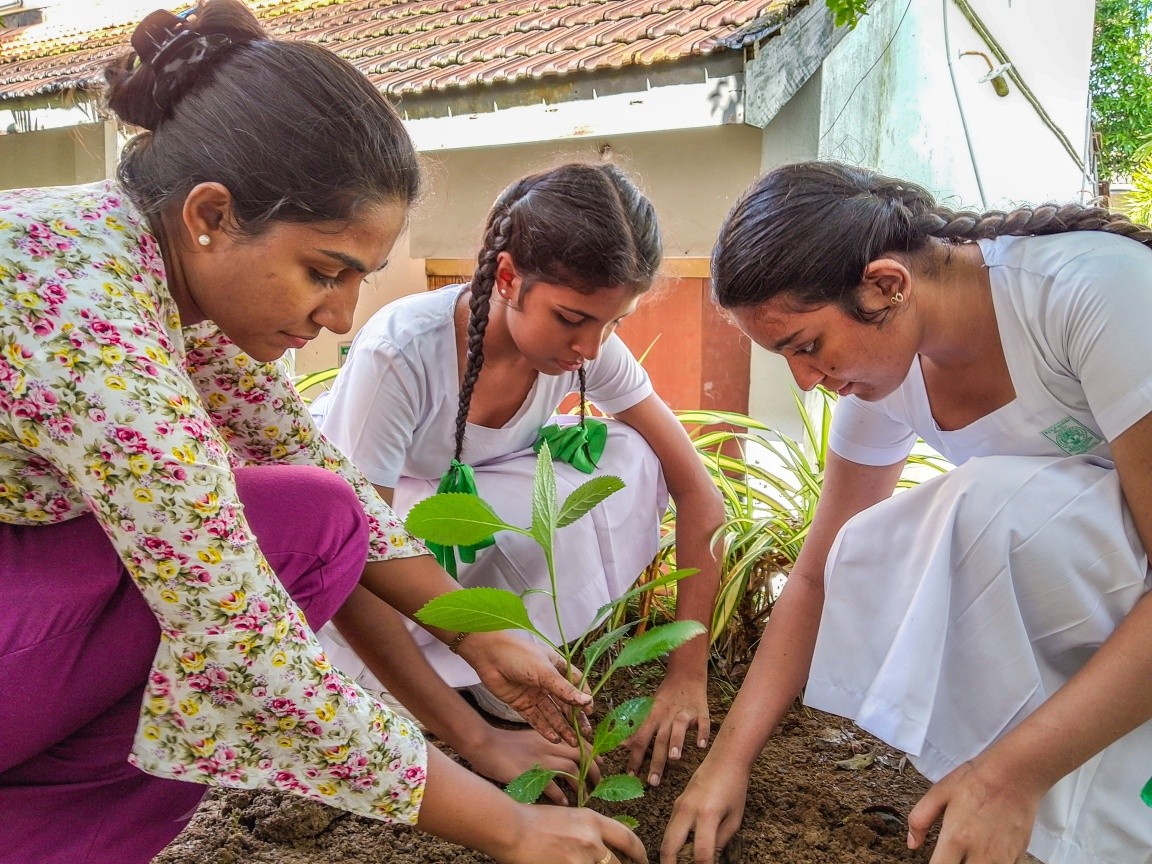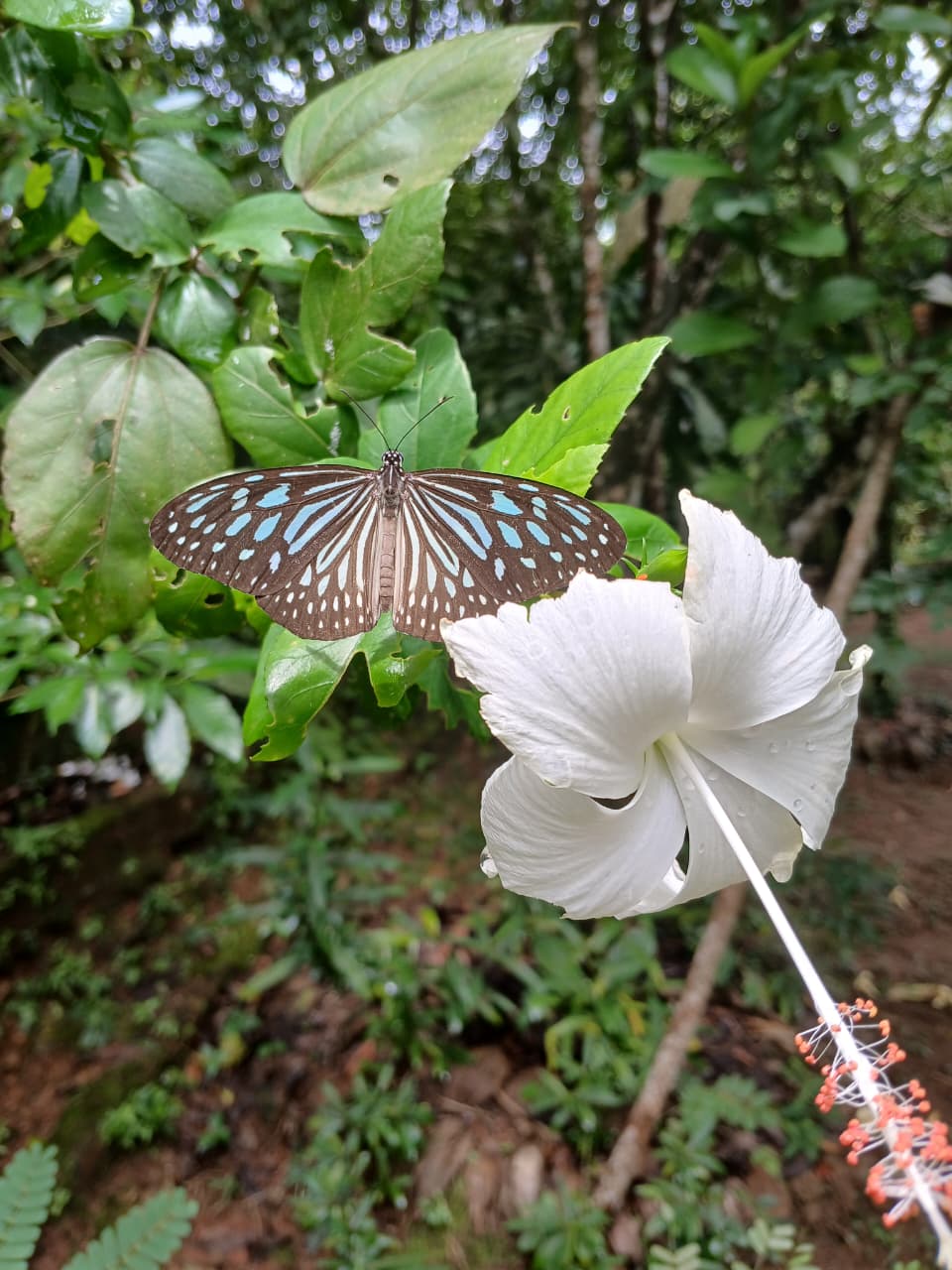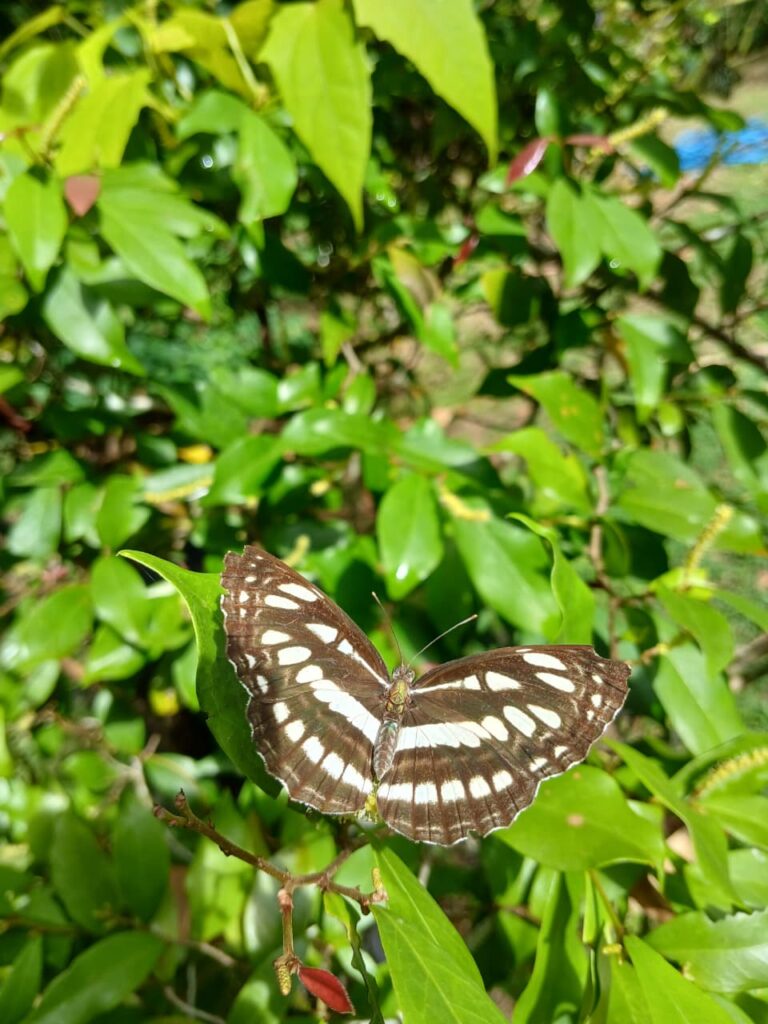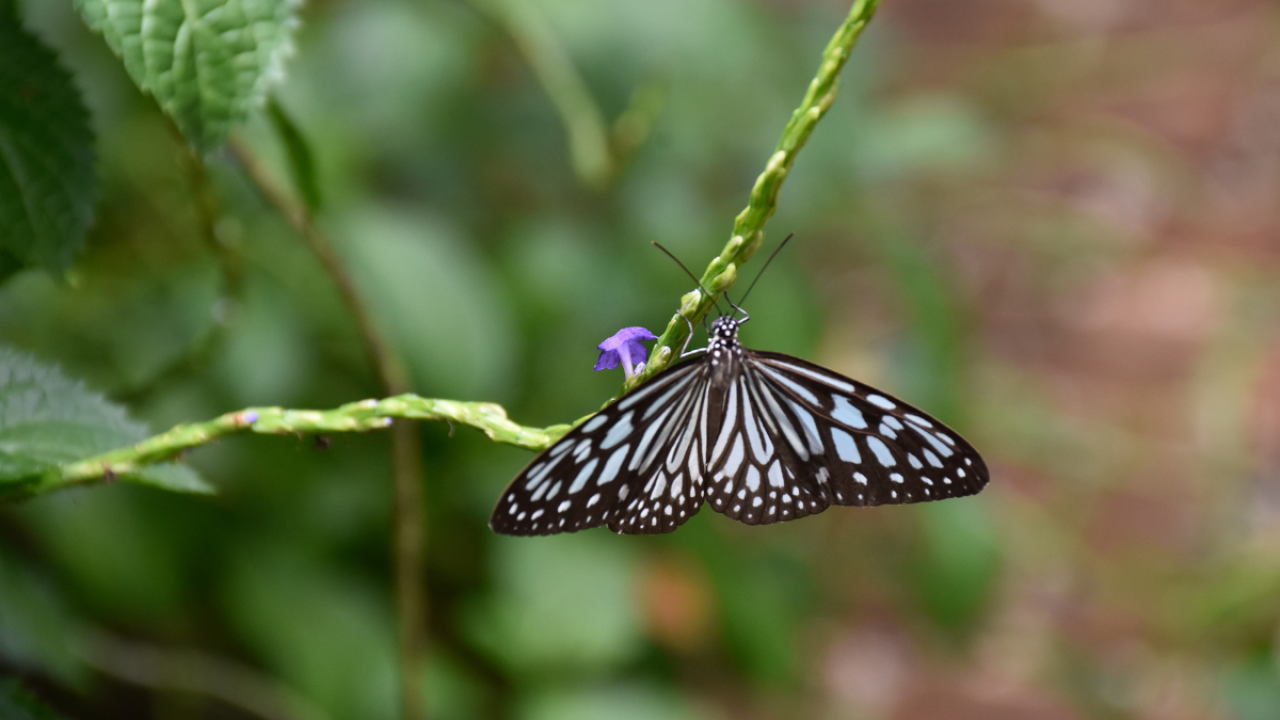The Nagenahiru Foundation, through the Living Lakes Biodiversity and Climate Project, has introduced an inspiring initiative around Madampa Lake – the creation of open air butterfly gardens.
These gardens are not only about beautifying the environment but also about restoring biodiversity, strengthening ecosystems, and improving community well-being.

Why Butterflies Matter
Sri Lanka recored 248 species of Butterfly and its more than just colorful insects. They play a crucial role in pollination, helping plants reproduce, boosting crop yields, and maintaining ecological balance. Their presence is also a powerful indicator of ecosystem health because butterflies are highly sensitive to environmental changes such as pollution, habitat loss, and chemical use.
In recent decades, butterfly populations in Sri Lanka have been threatened by the loss of natural habitats and the excessive use of pesticides. Recognizing this challenge, the Nagenahiru Foundation launched the open air butterfly garden project as a community-based solution that protects pollinators while connecting people more closely to nature.
Madampa Lake and its surroundings are home to a rich diversity of butterfly species, and by conserving their habitats, we also safeguard many other species that depend on healthy ecosystems.
Creating Habitats with Host and Nectar Plants
At the heart of the project is the cultivation of host plants and nectar plants that are essential for the life cycle of butterflies:
- Host plants provide food and shelter for caterpillars, allowing them to grow and transform into butterflies.
- Nectar plants supply adult butterflies with energy to survive, reproduce, and continue their role as pollinators.
By carefully selecting plants suited to the species found around Madampa Lake, the project ensures that butterflies have the resources they need at every stage of life. This scientific approach has already begun to show results, with an increase in sightings of several species in the gardens.

Reducing Chemicals, Promoting Organic Practices
A key challenge to butterfly survival is the widespread use of toxic chemicals in farming and home gardening. Pesticides not only kill pests but also harm butterflies, bees, and many other beneficial organisms.
To address this, the Nagenahiru Foundation actively promotes organic farming and eco-friendly pest control methods among local farmers and households. By reducing the use of harmful chemicals, the community not only protects butterflies but also improves soil health, water quality, and long-term food security.
This combination of butterfly gardening and organic farming provides a model of coexistence, where conservation and agriculture go hand in hand.
Community Participation: From Homes to Temples
The butterfly garden initiative is rooted in community involvement, making conservation part of everyday life.
- A main demonstration garden has been established at the Nagenahiru Environmental Learning Center (NELC), serving as a training site for schools, visitors, and researchers.
- Schools are encouraged to create their own butterfly gardens, allowing children to learn through hands-on experiences.
- Families are supported in developing home gardens, turning small spaces into pockets of biodiversity.
Even public places such as temples have been included, ensuring that butterfly conservation is embraced in cultural and spiritual spaces where people gather.
This broad participation fosters a sense of collective responsibility, ensuring that the project belongs to the whole community rather than to a single institution.

Benefits Beyond Conservation
The butterfly gardens bring multiple layers of benefits to the community and the environment:
- Ecological benefits: increased butterfly populations strengthen pollination and contribute to healthier ecosystems.
- Educational benefits: children and youth gain scientific knowledge and practical conservation skills through hands-on learning.
- Social benefits: gardens create colorful, peaceful spaces that provide psychological relaxation and reduce stress.
- Economic benefits: the gardens add to the beauty of Madampa Lake, enhancing its potential as an eco-tourism destination and providing sustainable livelihood opportunities for local families.

Looking Ahead
Through the Living Lakes Biodiversity and Climate Project, the Nagenahiru Foundation demonstrates how simple, community-driven actions can address global challenges such as biodiversity loss and climate change. By creating butterfly gardens, we are not only protecting pollinators but also nurturing healthier ecosystems and empowering local people with sustainable solutions.
The vision is to expand these gardens further – across more schools, homes, and public spaces – until the entire Madampa Lake area becomes a network of habitats that celebrate and protect butterfly life.
In the delicate wings of a butterfly, we see both fragility and strength. By caring for them, we care for ourselves, our communities, and the natural world that sustains us all.

